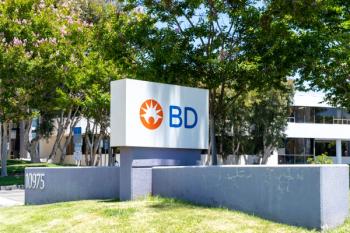
- LCGC Europe-11-01-2010
- Volume 23
- Issue 10
Event News
Upcoming Events
SCM–5
The Fifth International Symposium on the Separation and Characterization of Natural and Synthetic Macromolecules (SCM–5) will be held in Amsterdam, The Netherlands from 26–28 January 2011. The SCM series of meetings have gained a reputation as a premier platform for obtaining and exchanging information on characterization methods for "large" molecules. As the title of the meeting suggests, SCM is very much concerned with separations. Almost all macromolecules occur in complex mixtures. Therefore their detailed molecular characterization inevitably relies on separation techniques. Among these, liquid-chromatographic (LC) techniques are arguably the most prolific.
There will be a great deal of attention for studies into the understanding and application of size-exclusion chromatography (SEC), which is the workhorse of polymer separations. Various advanced detection techniques for SEC with be intensively discussed. Other isocratic ("critical") and gradient LC separations will be addressed in many presentations, as well as comprehensive two-dimensional liquid chromatography (LC×LC), which is an immensely useful technique for characterizing complex mixtures of polymers.
Field-flow fractionation (FFF) techniques were conceived by the formidable J. Calvin Giddings more than 30 years ago, but a strong resurgence became apparent during the previous SCM meeting in 2009. This year a great deal of attention will again be devoted to FFF techniques and a one-day course will be offered just before the SCM–5 meeting to bring newcomers up to speed with the exciting possibilities of FFF.
The FFF course will be presented by two of the greatest experts in the world: Kim Williams of the Colorado School of Mines (Golden, Colorado, USA) and Meyung Hee Moon of Yonsei University in Seoul, South Korea. This course will allow scientists to decide whether — and how — to apply FFF for their specific applications. It also provides a perfect platform for the state-of-the-art presentations during the SCM–5 conference.
Another hot area in separation science is mass spectrometry (MS). The application of MS for the analysis of macromolecules has been — and still is — making amazing progress. The SCM–5 meeting will take place in the Rhône Conference Centre, which can be easily and rapidly reached from central Amsterdam. There will be a large exhibition, which will be integrated with posters sessions, luncheons and coffee breaks.
There is also an opportunity for exhibitors to present new developments in the form of vendor seminars. SCM–5 promises to be every bit as informative, challenging and enjoyable as the previous meetings in this series. Details of the conference programme and further information can be found on the conference website at
7–10 November 2010
3rd International Conference on Polyolefin Characterization (ICPC)
Shanghai, China
Contact: Raquel Úbeda
E-mail:
Website:
10–12 November 2010
27th Montreux Symposium on LC–MS
Montreux Music and Convention Centre, Montreux, Switzerland
Contact: Marianne Frei
E-mail:
Website:
9–10 November 2010
European Biomarkers Summit
Florence, Italy.
Contact: Matthew Ames
Tel: +44 (0) 1787 315119
E-mail:
Website:
29–30 November 2010
Chemspec Middle East
Dubai, UAE
Email:
Website:
10–12 November 2010
27th Montreux Symposium on LC–MS
Montreux Music and Convention Centre, Montreux, Switzerland
Contact: Marianne Frei
E-mail:
Website:
Send any event news to Doug Kitson at
Articles in this issue
about 15 years ago
Method Development for Drug Impurity Profiling (Part 2)about 15 years ago
UHPLC Tips and Tricksabout 15 years ago
Lab-on-a-Chip GC for Environmental Researchabout 15 years ago
Q&A: Out Of Office Replyabout 15 years ago
When Peaks Collide (Part 3)about 15 years ago
Analysing Metal Ions by CENewsletter
Join the global community of analytical scientists who trust LCGC for insights on the latest techniques, trends, and expert solutions in chromatography.




